Geckos as Pets
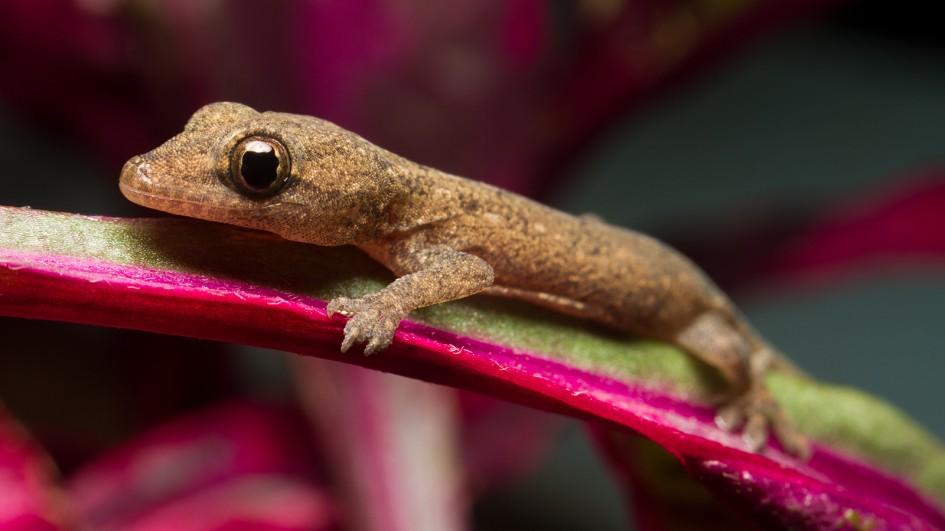
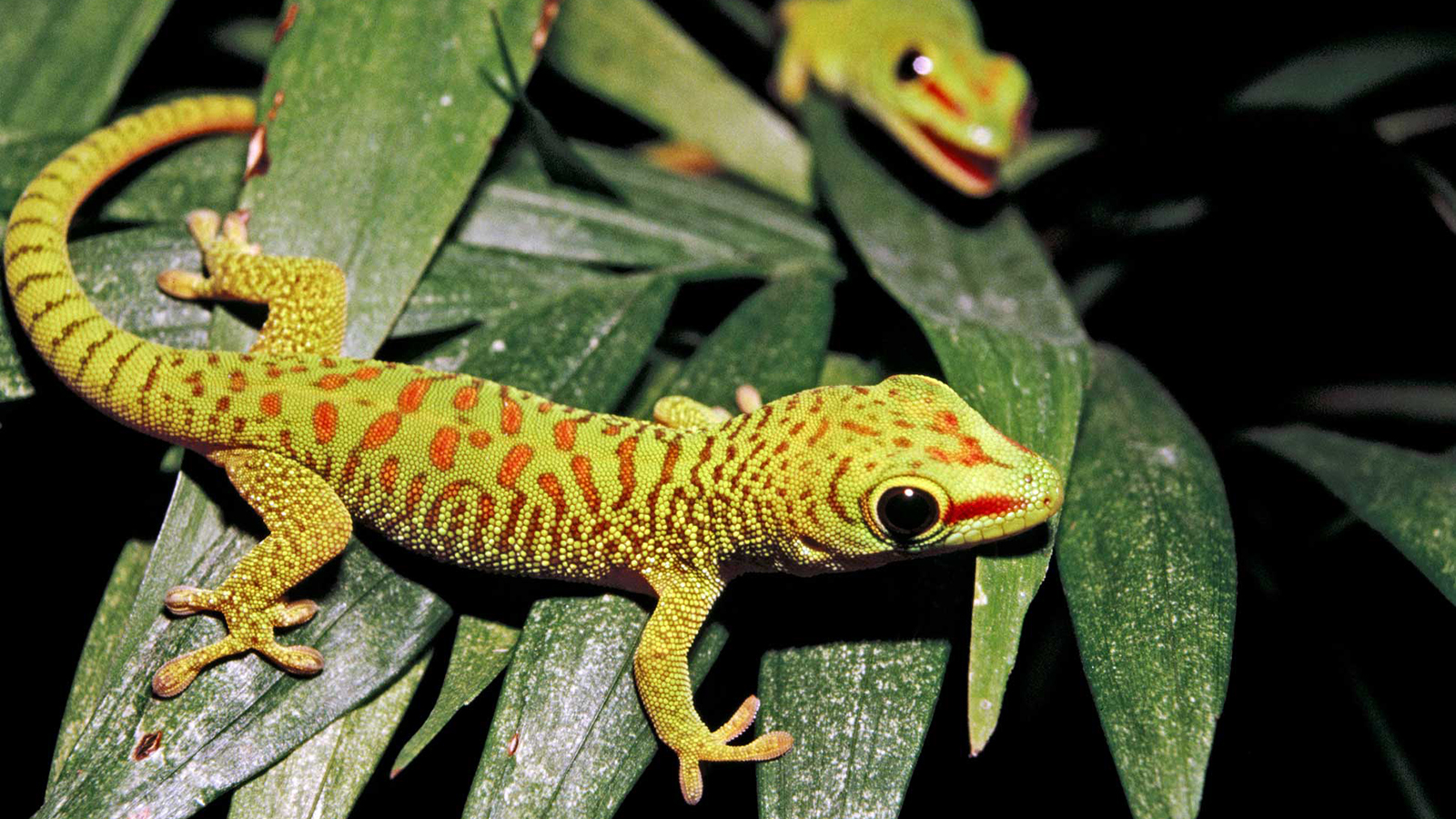
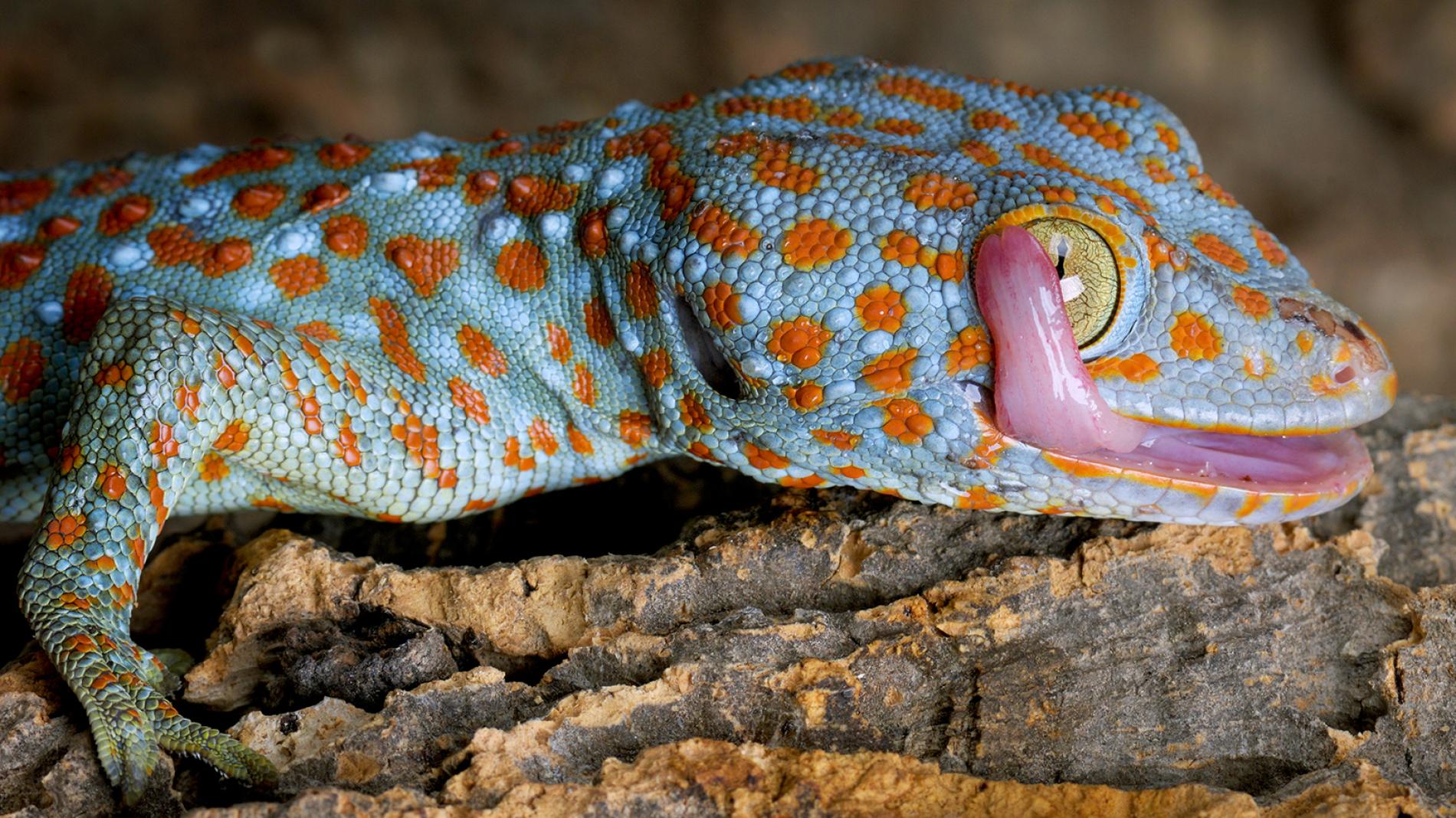
Home - Types of Geckos - Geckos as Pets
Every type of gecko has individual needs for their general care. This page will give you a rough idea of the needs of some types of geckos. Before getting your own pet gecko, it is highly encouraged that you do some more thorough research.
Leopard Gecko Care
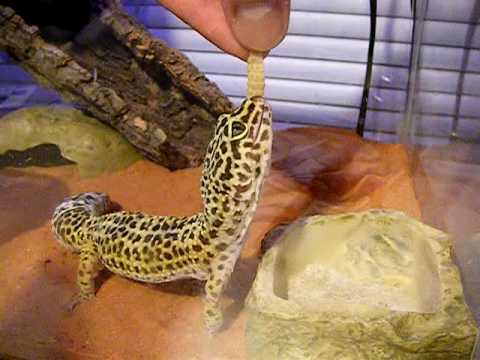
- Diet: Eat a variety of live crickets, waxworms, and meal worms (in moderation), need to be gut loaded before being fed to your gecko
- Housing: 10-20 gallon tank for 1 or 2 leopard geckos, at least 1 ft tall. Provide multiple hiding areas with non-toxic plants, branches, logs, and cork
- Habitat Maintenance: Thorough cleaning and disinfecting at least once a week
- Normal Behavior: Nocturnal, eat their skin when shedding, keep handling to a minimum as overhandling can cause them stress, never grab by the tail as they may drop their tail
Crested Gecko Care
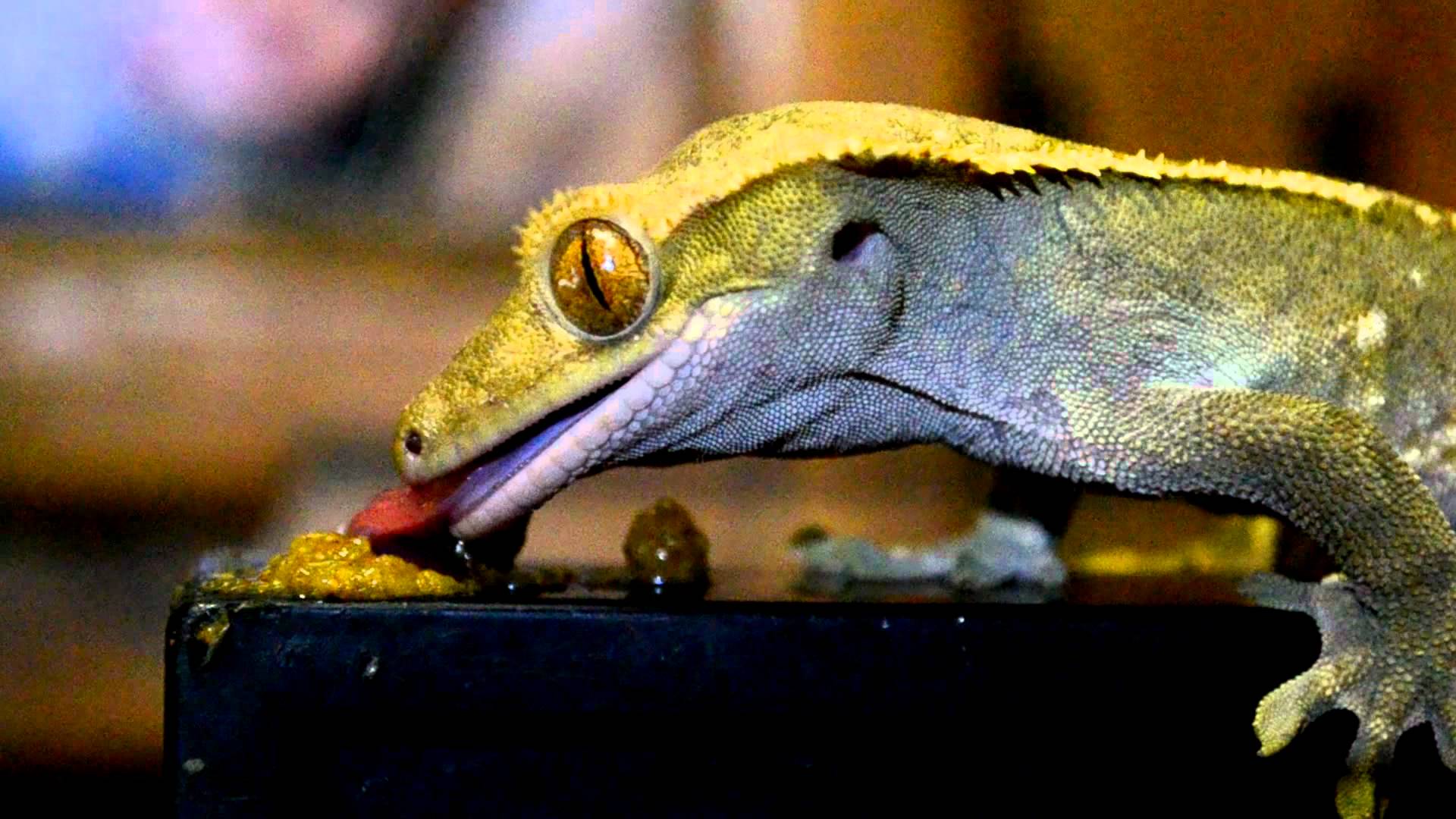
- Diet: Commercial crested gecko food is an easy, balanced, and nutritious diet. Can be supplemented with gut-loaded crickets, roaches, waxworms, etc to exercise its hunting instincts. Fruit can also be fed several times a week
- Housing: Minimum 20 gallon tank for an adult but larger is better, height is more desirable than width because they need space for vertical climbing. Provide multiple branches for climbing and shelter for hiding, live non-toxic plants recommended
- Habitat Maintenance: Thorough cleaning and disinfecting at least once a week
- Normal Behavior: Nocturnal, exceptional leapers, will tolerate gentle handling, lick their eyeballs to moisten them
African Fat-Tailed Gecko Care
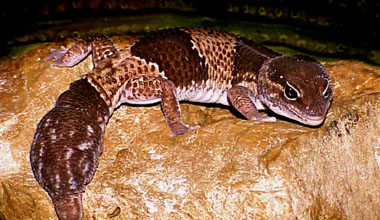
- Diet: Gut loaded crickets and/or mealworms, occassionally supplemented by silkworms or waxworms
- Housing: 10 gallon aquarium can house a pair. Provide thick branches for climbing and a hiding area elevated off the habitat floor
- Habitat Maintenance: Thorough cleaning and disinfecting at least once a week
- Normal Behavior: Nocturnal, can be shy but also can be open to being handled with regular contact





